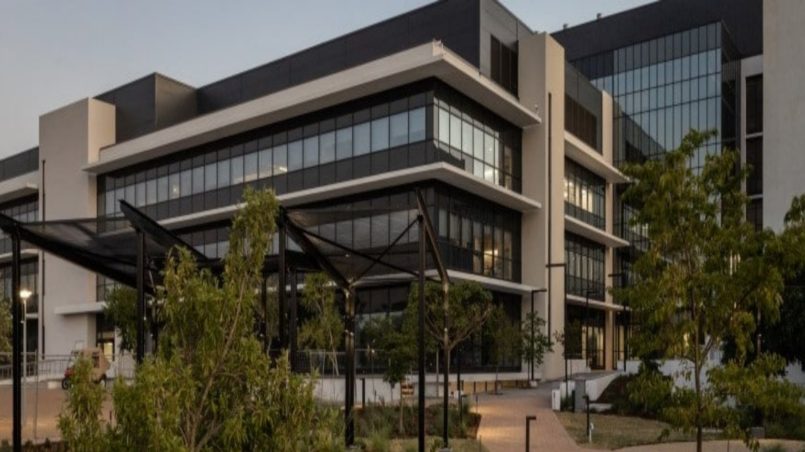A R1.2 billion state-of-the-art Biomedical Research Institute (BMRI) has placed Stellenbosch University (SU) at the forefront of biomedical sciences in Africa.
According to the university, the world-class biomedical research complex, which houses over 500 biomedical researchers and students, including some of the world’s foremost scientists in the fields of bioinformatics, tuberculosis, neuroscience and urology, was constructed in 2018 and only completed this year.
The institution described the BMRI as the largest and most sophisticated research complex of its kind on the African continent and in the southern hemisphere.
Stellenbosch University said the value of the BMRI was recognised even before its completion, and the facility’s potential was further endorsed when the institution’s Centre for Epidemic Response and Innovation, in BMRI, was selected by the World Health Organization as a partner member of the first Covid mRNA vaccine technology transfer hub.
Professor Elmi Muller, the dean of the faculty of medicine and health sciences (FMHS), said the BMRI would be a game changer for healthcare in Africa and was true evidence of using breakthrough science to improve lives.
Muller added:
The investment in the BMRI will allow significant human capacity development through training some of the best students from the continent and exposing them to extensive national and international research networks to result in the next generation of successful scientists.
Meanwhile, Professor Sibusiso Moyo, SU’s deputy vice-chancellor: research, innovation and postgraduate studies, said the research conducted in the BMRI builds on the university’s commitment to impactful research, which considers the natural environment, health and human security, as well as systems and technologies for the future.
“At the heart of our scientific endeavours is the challenge to be locally relevant and globally competitive,” Moyo said.
Professor Nico Gey van Pittius, vice dean: research and internationalisation of SU’s FMHS, mentioned:
Scientists at the BMRI conduct research that translates into discoveries that help improve the diagnosis, prevention and treatment of illnesses affecting the people of South Africa and the rest of Africa.
SU said the BMRI will host the largest biosafety level three laboratory facilities in Africa. The biosafety level three laboratories are used to study infectious agents or toxins that may be transmitted through the air and cause potentially lethal infections.
“The BMRI boasts advanced energy recovery technology fitted to the air system that reduces the building’s carbon footprint compared to other similar buildings. It will also host a bioinformatics hub, electron microscopy lab, proteomics and flow cytometry services lab, and a medial morphological learning centre, sun-skill lab and clinical research facilities,” added a statement from the institution.
Get South Africa’s latest entrepreneurial or business success stories delivered right to your inbox — Sign up to Entrepreneur Hub SA’s newsletter today

eBook: 50 South African Entrepreneurs Reveal HOW THEY MADE IT




